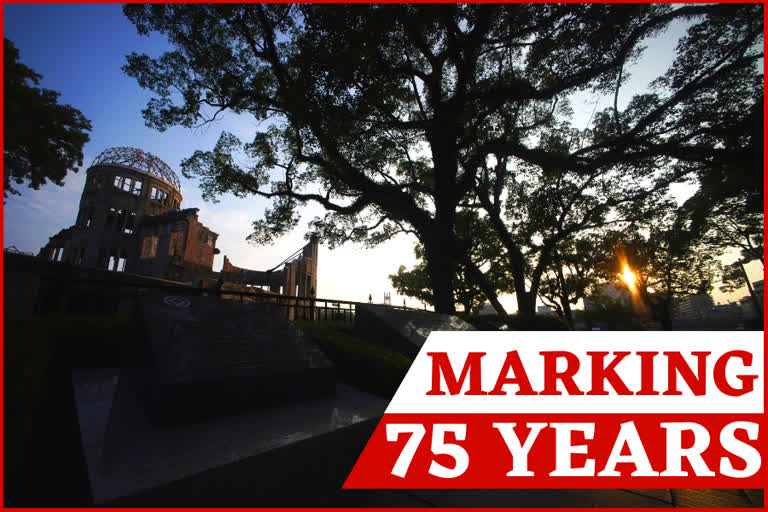Hiroshima: After Victory in Europe and with Japan not willing to surrender, the United States decided to drop atomic bombs on Hiroshima and Nagasaki in early August 1945, leading to ultimate defeat for the Japanese.
The US attack on Hiroshima on Aug. 6, 1945, killed 140,000 people. The bomb dropped three days later on Nagasaki killed another 70,000 before Japan's surrender ended World War II.
In 1948 Japan's former Premier Hideki Tojo and other Japanese World War II leaders were sentenced to death by a war crimes tribunal.
With corpses charred black, bodies with their skins peeled off and with lines of people tottering in silence, a hell on earth emerged. Those who narrowly survived soon collapsed one after another.
For more than 75 years since then, people have struggled to live on, afflicted by the delayed effects and by anxiety about the possible effects of radiation on their children and grandchildren.
Read | Fireworks, ammonium nitrate likely fueled Beirut explosion
Nearly 70 years after the bombings took place, most of the generation that was alive during the attack has passed away.
Now, much more attention has turned to the children born to the survivors. Regarding individuals who had been exposed to radiation before birth (in utero), studies, such as one led by E. Nakashima in 1994, have shown that exposure led to increases in small head size and mental disability, as well as impairment in physical growth.
Persons exposed in utero were also found to have a lower increase in cancer rate than survivors who were children at the time of the attack.
One of the most immediate concerns after the attacks regarding the future of both Hiroshima and Nagasaki was what health effects the radiation would have on the children of survivors conceived after the bombings.
Read | Hiroshima marks 74th anniversary of WWII atomic bombing
So far, no radiation-related excess of the disease has been seen in the children of survivors, though more time is needed to be able to know for certain.
In general, though, the healthfulness of the new generations in Hiroshima and Nagasaki provides confidence that, like the oleander flower, the cities will continue to rise from their past destruction.
Following a nuclear explosion, there are two forms of residual radioactivity. The first is the fallout of the nuclear material and fission products. Most of this was dispersed in the atmosphere or blown away by the wind.
Though some did fall onto the city as black rain, the level of radioactivity today is so low it can be barely distinguished from the trace amounts presents throughout the world as a result of atmospheric tests in the 1950s and 1960s.
The other form of radiation is neutron activation. Neutrons can cause non-radioactive materials to become radioactive when caught by atomic nuclei.
However, since the bombs were detonated so far above the ground, there was very little contamination—especially in contrast to nuclear test sites such as those in Nevada. Nearly all the induced radioactivity decayed within a few days of the explosions.
About 78 percent of atomic bomb survivors challenges and limitations presented by aging
Ahead of the US bombing anniversary, the survey also found that 63.1 percent of the survivors think the global outbreak of the novel coronavirus is preventing them to some extent from promoting the abolition of nuclear weapons.
This year marks the 75th anniversary of the atomic bombings of Hiroshima and Nagasaki. Across the globe, events and commemorations are taking place to mark this historical event, to remember the hibakusha (Atomic bomb survivors), and to say, "Never Again!" to the use of nuclear weapons.
The memorial will be held on August 9 at the World Peace Bell in the Christchurch Botanical Gardens. The World Peace Bell will be rung to mark the time that the bomb was dropped on Hiroshima.



